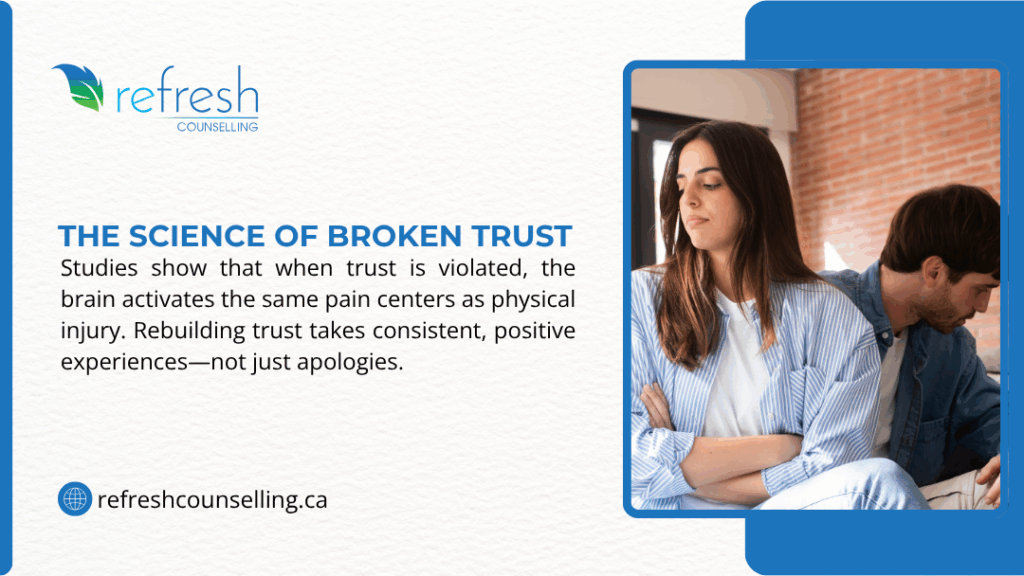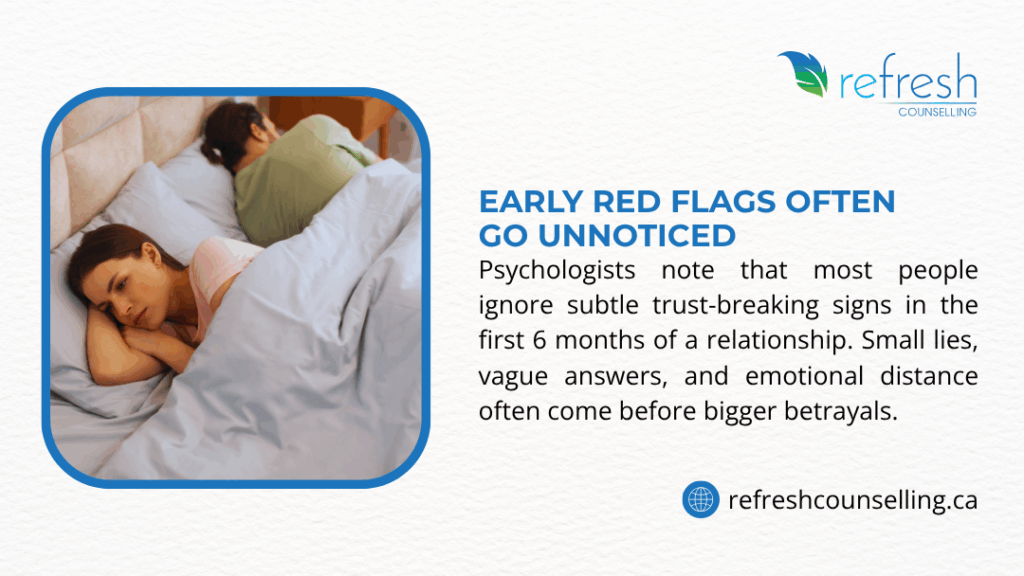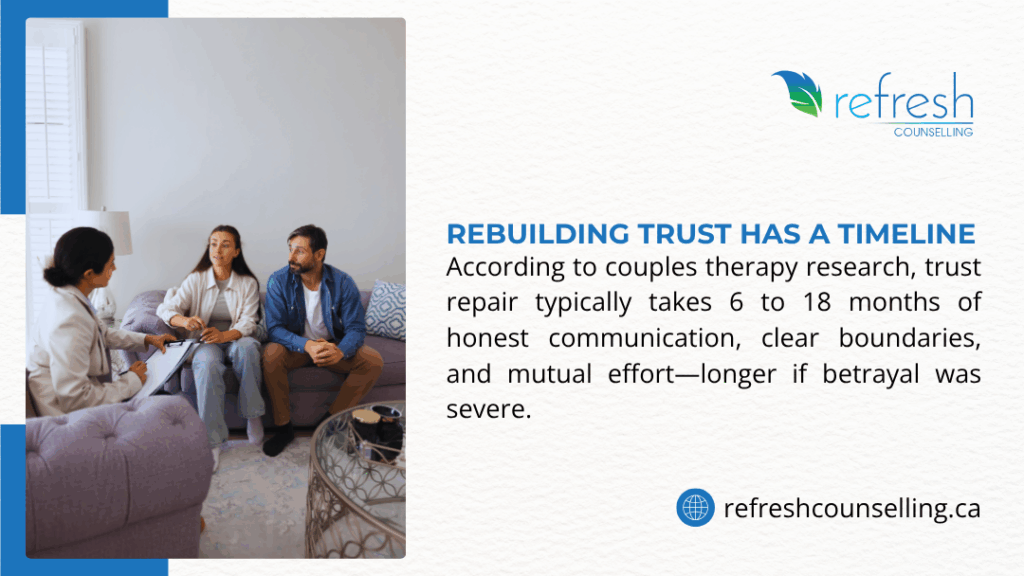Saying “I love my boyfriend but I don’t trust him” feels like your heart is at war with your mind. There is something inside that won’t let you fully relax around him, even though you care deeply about this person.
If you’re a woman reading this and find yourself questioning whether your boyfriend truly loves you, know that you’re not alone. Many couples face this exact dynamic of deep love mixed with persistent doubt.
Let’s fully understand how trust issues develop in relationships, how to recognize if your concerns are valid and how to effectively respond to these feelings of uncertainty.
Why Do Trust Issues Develop Even When You’re in Love?
Trust issues in relationships often come up with a reason, sometimes they develop from current relationship dynamics and other times they grow because of experiences that happened long before you met with your partner.
Here are four main factors that may contribute to the development of trust issues:
Factor | How It Contributes to Trust Issues |
Past Relationships | Being cheated on or lied to can leave emotional scars even when your current partner is trustworthy. |
Childhood Experiences | Growing up with inconsistent care or feeling betrayed by family can make it hard to fully trust others as an adult. |
Current Relationship Dynamics | Promises which are broken, hidden information or unexplained behaviours can cause doubt and turn into larger trust problems. |
Anxiety | These can be worries from general or relationship-specific anxiety that make you see threats which aren’t really there. |
Recognizing Valid Concerns vs. Unfounded Fears
Distinguishing between intuition and anxiety is one of the hardest parts of trust issues. Both feel urgent and real in your body.
Valid concerns usually have specific triggers. Your boyfriend’s story doesn’t add up. He guards his phone obsessively. His behavior changed suddenly without explanation. These concrete observations deserve attention and conversation.
Unfounded fears tend to be vague and shifting. The worry moves from topic to topic without resolution. You might obsess about cheating one day, then his feelings changing the next. No amount of reassurance brings lasting relief.
Pay attention to patterns in your thoughts. Do trust issues appear in all your relationships or just this one? Have friends or family mentioned that you seem unusually suspicious? These patterns might indicate the problem extends beyond your current relationship.
Your body offers clues too. Valid concerns often bring clarity and determination. Anxiety-driven fears create panic, racing thoughts, and physical symptoms like chest tightness or insomnia.

The Impact of Not Trusting Your Partner
Living with the thought “I love my boyfriend but I don’t trust him” creates exhausting emotional cycles. You want closeness but fear getting hurt. You crave reassurance but doubt everything he says.
This constant vigilance drains your energy. Checking his social media, analyzing his words for hidden meanings, and preparing for betrayal takes tremendous mental effort. Many people describe feeling emotionally exhausted from maintaining this level of alertness.
The relationship suffers too. Your boyfriend likely senses your doubt even if you haven’t voiced it directly. He might feel frustrated, hurt, or defensive about being viewed with suspicion. Some partners withdraw emotionally when they feel unfairly accused.
Jealousy and controlling behaviors often follow trust issues. You might find yourself demanding constant updates, getting upset about normal friendships, or creating rules to feel safer. These behaviors push partners away and create the very distance you’re trying to avoid.
When Your Partner Struggles to Trust You
Sometimes the dynamic flips. You might think “my boyfriend doesn’t trust me but I haven’t done anything” wrong. Being on the receiving end of unfounded suspicion feels incredibly frustrating and hurtful.
When a partner feels doubtful even if you are being faithful, it is often a reflection of their own challenges, whether that means past relationships, anxiety, or insecurities.
This requires gentle patience and limits. You can be open and reassuring, but you cannot accept an unwarranted level of mistrust. Trust is integral to a healthy relationship on both sides.
Think for a moment, is your partner’s worry being unintentionally activated? Although their feelings are not your fault, small alterations – like sharing your plans, or bringing them out socially – could lessen this anxiety while maintaining your independence.
When trust is in question for both partners, seeking professional help can be beneficial. A qualified couples counseling will provide a safe environment to discuss, pinpoint triggers, and develop strategies to reclaim a feeling of safety in the relationship.

Steps You Can Take to Address Trust Issues
Working through trust problems requires intentional effort from both partners.
| Step | What to Do |
| Examine Your Patterns | Notice what triggers your doubts and look for patterns in your feelings. |
| Journal Your Concerns | Write down incidents that spark doubt to separate real issues from anxiety. |
| Communicate Openly | Use “I feel” statements, share your struggles, and ask for patience and support. |
| Set Healthy Boundaries | Agree on boundaries that build trust, like phone-free time or check-ins, without being controlling. |
| Practice Self-Soothing | Use breathing, grounding, or talking to a friend to manage anxiety and avoid reactive behaviors. |
| Challenge Negative Thoughts | Question your fears and check if there’s real evidence before assuming the worst. |
What We Can Say As Conclusion
Most relationships which have gone through this phase, often overcome these challenges with time. But if your partner keeps crossing boundaries or ignores your concerns, leaving can be the healthiest choice for you.
Remember: Make your mental health a top priority. A healthy relationship isn’t just about love, but it’s also about respect, empathy, and feeling safe.

Get Professional Help!
If trust is an issue in your relationship, professional counselling can help.
Refresh Counselling is one of the most trusted mental health practices in Calgary for individual and couples counselling through trust and relationship problems. In just five years since our doors opened, we have the trust of hundreds of couples who have routinely received personal care that actually matters.
The best way of addressing the question “I love my boyfriend but I don’t trust him” is through speaking to a professional. Contact our team today to discuss how we can help you create trust, security, and peace in your relationship.
